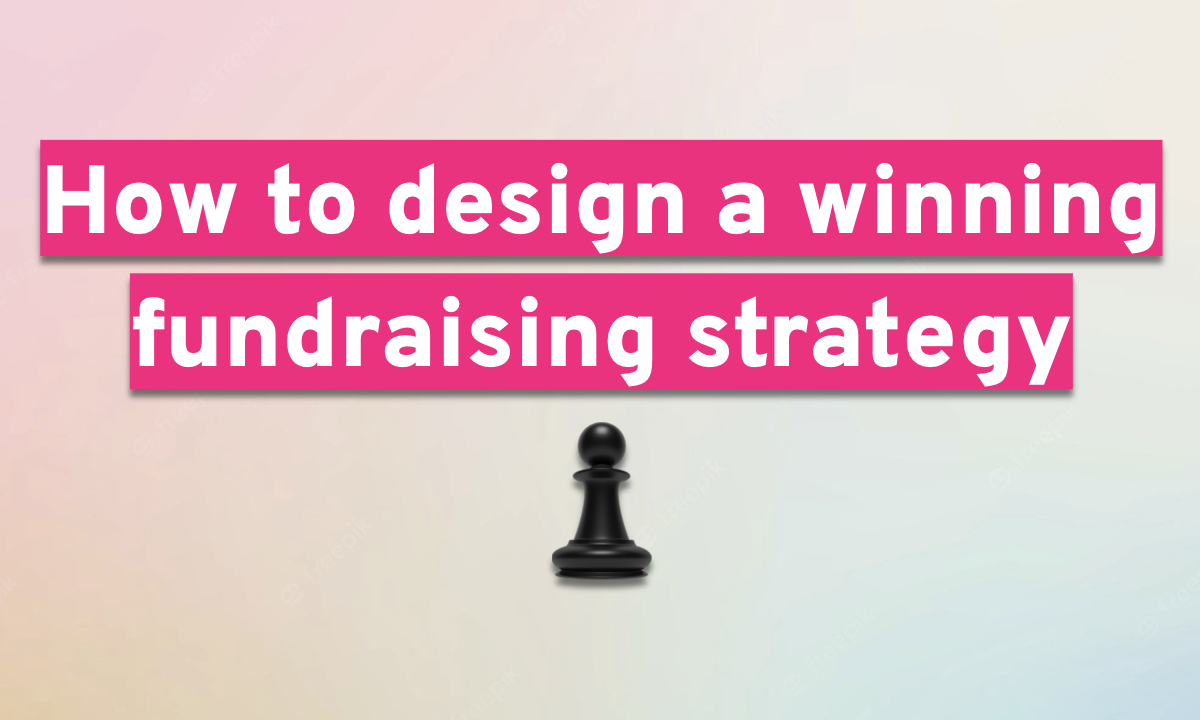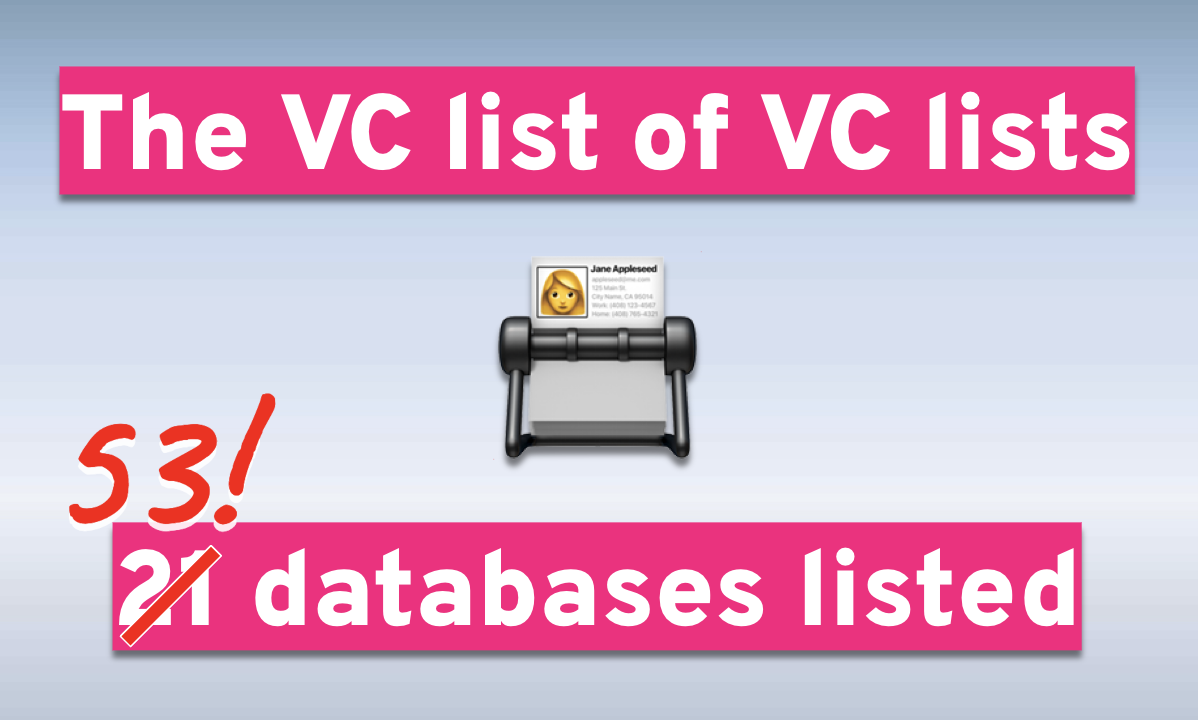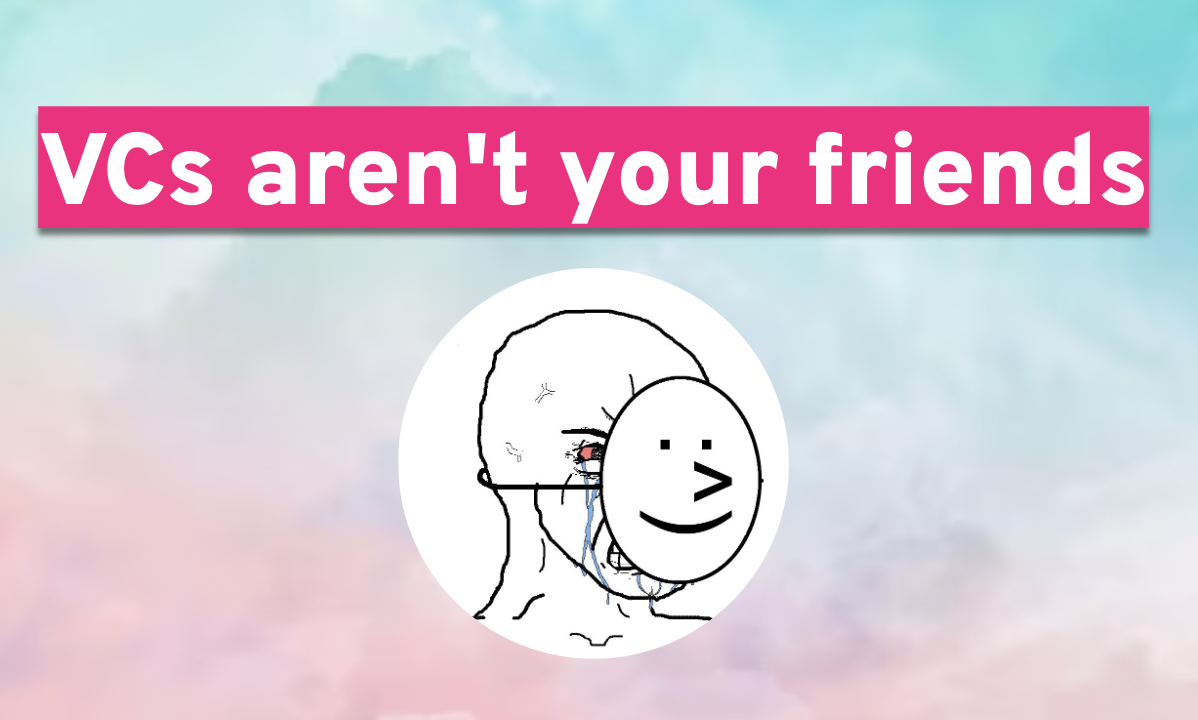This isn't another "kill the rich" hit piece. Please read the post first, then join the conversation on Linkedin and Twitter! 🙏
Why do people build startups? To get rich, of course!
It's understandable. In 2019, the average SaaS founder made $708M at IPO.
Few jobs offer this kind of upside.
Therefore, people are quick to see entrepreneurship as a social ladder on steroids, a fast track ticket to generational wealth.
And VCs are the gatekeepers. By investing, they give you a shot at becoming a billionaire. By passing, they deny you the golden ticket.
(Or at least, many founders feel that way...)
This is where things get ugly: poor founders don't raise.
But instead of another "kill the rich'' piece, let's break down why poor founders have a hard time getting funded. And maybe how some founders realistically make it happen.
This won't be a fun read, but you're here for it.
Table of Contents
Poor founders aren't meant to raise funds
Reason #1. Poor founders don't make it the VC starting line
Many founders believe that VCs will cover their initial costs: incorporation, IP filing, MVP development, customer research, early sales & marketing, etc.
Well… no.
Unless you have a strong track record, the project will be derisked with your own money. Show traction first, then VCs will look at your startup.
Sure, you may raise a bit from angels, accelerators, grants... This may cover some product design, some paid ads, some legal fees... But what if you can't pay yourself a livable wage? That's an acceptable proposition for a wealthy founder, but not for a poor one.
This is the first reason why poor founders don't get funded.
Poor founders are less likely to have the startup capital required to get to fundability - the point where they can be considered for funding. In short, poor founders don't even make it to the VC starting line.
As the analogy goes:
"Entrepreneurship is like a dart throwing competition. Rich kids can afford many throws. Middle class kids can afford one throw. Poor kids aren't visiting the carnival".
By the way, this is not the VC's fault. It's just life being unfair.
Reason #2. Poor founders lack the "intangible assets" VCs crave for
There's more to money than cold hard cash.
Wealthy founders are more likely to:
- Have had a successful career, which translates into a strong track record
- Have connections that can be leveraged for fundraising, sales, hiring
- Understand the codes and norms i.e how to speak, convince, persuade investors
A poor founder won't have the same intangible assets.
All things being equal, rich founders are at a clear advantage over poorer ones, resulting in the latter less likely to be funded.
Here's what Oliver, exited founder and son of a dog catcher, had to say about it:
And then, of course, there's just the negative signal of being poor.
"Why would I trust with my money someone who hasn't made their own financial life successful in the first place?"
Not a nice thought, but as we say in French: "On ne prête qu'aux riches".

Unlock the secrets to startup fundraising 🚀
Use our FREE, expert-backed playbook to define your valuation, build VC connections, and secure capital faster.
Access now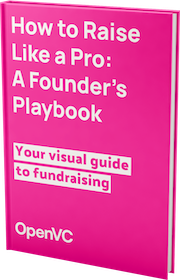
Reason #3. Poor founders have more to lose, not less
Even if a poor founder secures a term sheet, raising might still not be the right decision for them. Here's why.
When you raise VC money, you run your company in hypergrowth mode.
Higher rewards, but also higher risks. This type of management increases the risk of failure. A few bad quarters that become a bad year, an economic downturn that dries up VC money, a downround that wipes out your equity…
That's the price of raising VC money: you're more likely to walk out butt-naked.
Ask the FanDuel founders:
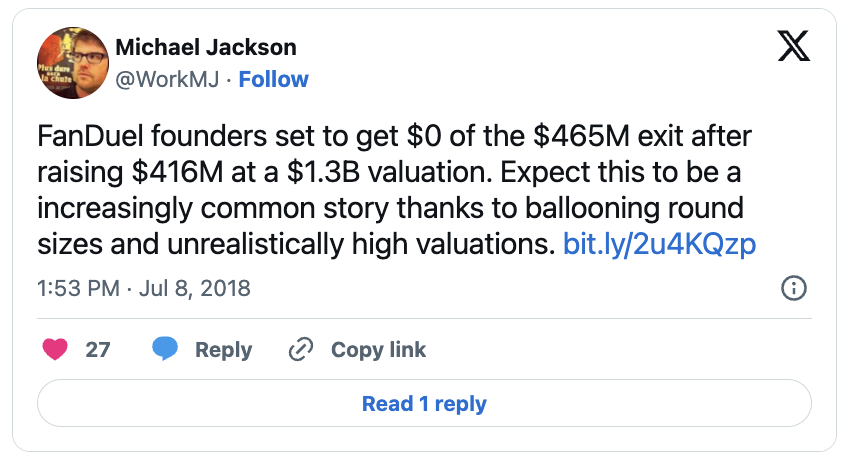
It also happened to a founder friend of mine who raised $100M+ in VC money, worked tirelessly for 5 years on the business, and exited with… nothing.
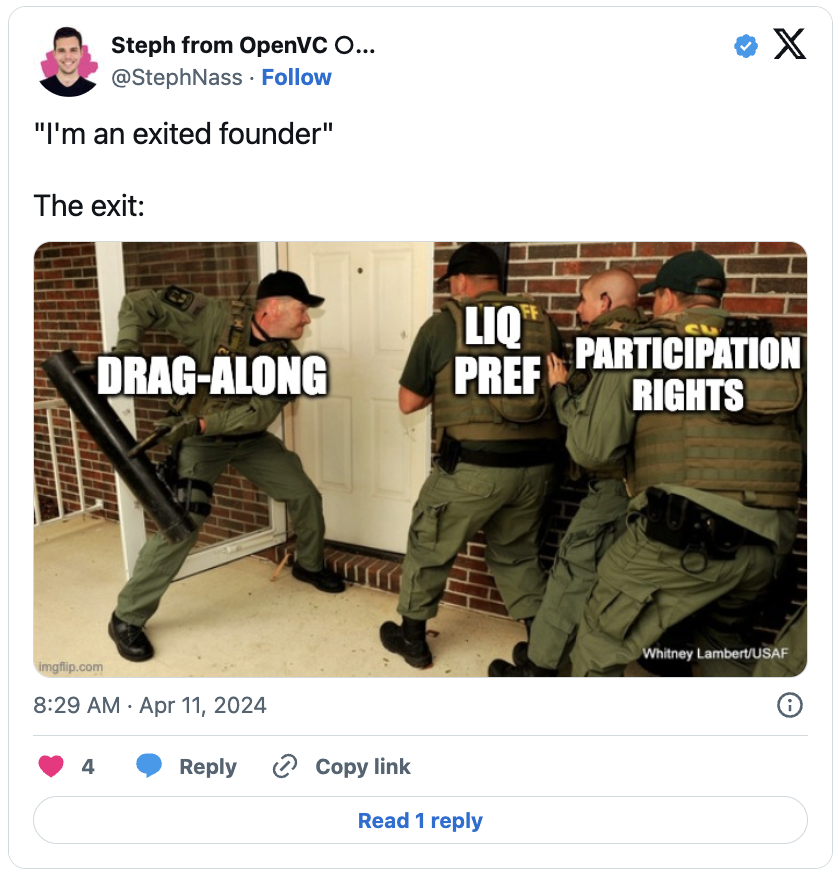
This is where venture capital is not for the poor.
Or rather, venture capital is not "poor-friendly".
If you already have personal wealth, venture capital is attractive. Best case scenario: you become a billionaire. Worst case scenario: you remain a millionaire.
But if you're poor, failure is a tragedy. It's back to the food banks.
The stakes aren't the same:
"If you are poor but did well enough in tech to start a company, your family most likely relies on you. For me, I am the person who handles it. So there is less buffer.
I pay for my mom's house. If I go to literal zero, I am not only homeless, my mom is homeless. What does this mean? The buffer needs to be a ton higher."
- Saleh Hindi, ex-poor founder
Poor founders have much more to lose than rich founders. They cannot afford the risk profile of a VC-backed company.
A smaller, safer bet might be the better option for them.
Savvy founders build wealth first, raise VC second
This all comes down to wealth building.
Founders who haven't been exposed to wealth tend to see fundraising as their whole wealth building strategy.
"I'll raise a big seed, grow, IPO, and I'll be rich. Genius!".
More savvy individuals take the slow road. They build some level of personal wealth first, then only after a safety net is in place, they go the VC route.
Working a 9-to-5 in Big Tech is a popular option:
If you want to do the VC thing and you’re poor, you have to spend YEARS getting ready and being meticulously deliberate overcoming the obstacles.
The only reason I am able to attempt starting a company is because I was paid $500K+ working at Lyft. You absolutely need to prep literally years in advance building cash, building your network, building your relationships, skills etc.
- Saleh Hindi, ex-poor founder
Another option consists in starting a lifestyle business first, and having a micro-exit or leaning on the passive income it generates.
Skylor has a great read on rich founders/poor founders.
"VCs underestimate the extent to which mainstream entrepreneurship is a key input to outliers and moonshots. So many successful billionaire founders had a “never worry about rent again” moment via an exit in a much more boring business before swinging for a home run."
- Skylor
But wait, there's more!
By building personal wealth, you will also develop the "intangible assets" you were missing as a poor founder.
Check out the "Ladder of Wealth" below.
Developed by Nathan Barry, this framework highlights typical steps from a 9-to-5 to tech entrepreneurship, and the growing amount of skills you will acquire over the process.
The same goes with your network.
As you progress in your journey, you will organically build the connections you were lacking as a poor founder. Finally, you'll get intros.
Andrew Rea was the king in May 2024 for saying out loud what most never admit:
To some extent, being a "VC-backed founder" is a career track, although nondescript and undefined.
Think of it as playing in the NBA. Before joining the playoffs, you got to start in street hoops.
Poor founders: beware the copium
Many founders won't like this post.
They want to build a tech startup, and they want to get funded now. They don't want to wait 5 years to be "in a position to be fundable".
Many investors also won't enjoy this, because it goes against the narrative that VC is inclusive and everybody gets a fair chance.
Realistically, venture capital is not poor friendly.
As with most things in life, having money gives you an edge. It's ok to say it. Pretending the opposite serves little more than your own personal branding.
Furthermore, don't believe the "Cinderella stories" on social media. They are usually survivorship bias, or pure gaslighting for likes.
(No offense to Nik, just trying to make a point.)
True, some successful founders came from humble beginnings.
But by the time they raise, they may be graduating from a top university or leading a team at Google or Netflix. Not exactly collecting food stamps.
Next time a VCs tells you to "go all-in", remember that they're playing a game of portfolio.
VCs are good people, but they aren't your friends. And they certainly won't be there to dig you out of the hole if/when things go south.
I would love telling founders that anything is possible.
But wishful thinking is irresponsible.
When discussing those topics, we should describe reality as it is, not as it should be. That's the unpleasant truth, and it's our responsibility when people bankroll their life savings to build the MVP of yet another dating app.
Poor founders: beware the copium.
Copium is a term created by combining 2 words together - cope and opium. It describes a fictional drug that one consumes after suffering a loss, defeat, or disappointment. It is used when the facts do not match reality.
Should poor founders raise VC money?
Maybe.
The purpose of this post isn't to give a hard rule.
Instead, I'd like to provide founders with a lesser-discussed perspective on fundraising: VC money doesn't have to be the starting point of your wealth building journey. Actually, it might be the opposite.
Please don't buy the VC hype blindly.
When you consider raising, think of it from the perspective of your own wealth building strategy. Does it make sense for you?
If you still want to raise VC funding after this, go for it!
Entrepreneurship is no science. There's no definitive data to back up my analysis. And it's not my place to tell you what to do.
This industry is famous for outliers. Maybe that's you. I (and OpenVC !) will be cheering for your success.
Just make sure you jump on the VC bandwagon from an informed point of view - including the unique challenges poor founders face as well as the unfavorable risk profile associated with a VC-backed business.
May the odds be ever in your favor.
Have an opinion on this? Join the conversation on Linkedin and Twitter
Unlock the secrets to startup fundraising 🚀
Use our FREE, expert-backed playbook to define your valuation, build VC connections, and secure capital faster.
Access now








